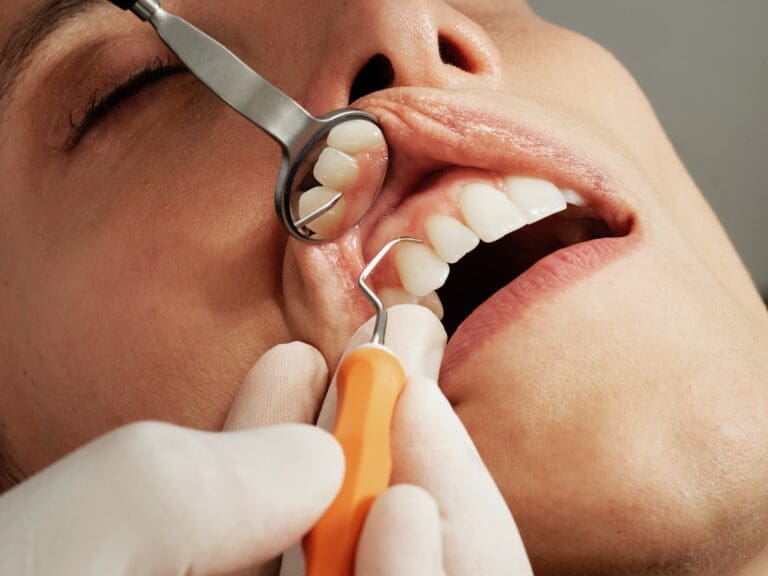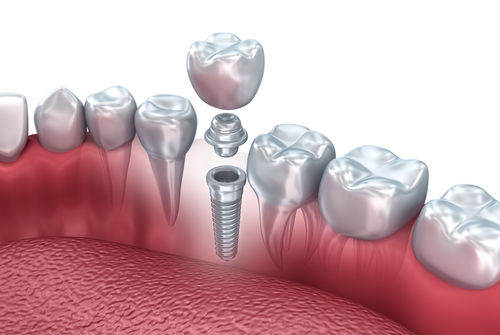Periodontal disease, also known as gum disease, occurs because of plaque build-up on your teeth. Failing to improve your dental hygiene will result in more problems: inflammation, gums pulling away, or in worse cases, tooth loss.
If you consult your family dentist, they will usually recommend deep cleaning treatments. In particular, the dentist will recommend you to do scaling, root planing, or both. Here are the essential things you must know about these procedures.
What Is Scaling?
Scaling, otherwise known as oral prophylaxis, is the process of removing tartar and plaque from your teeth. If left untreated, they will harden into calculus (tartar). Scaling is a treatment that is recommended every six months. Since it is non-invasive and inexpensive, you might have it done more frequently. This is especially true if you have signs and symptoms of gum disease.
What Is Root Planing?
Root planing is a procedure that has the same goal as scaling. It removes plaque and tartar from your teeth. The main difference is that the dentist will scrape your teeth from the top and the bottom. The difference is the orientation of the filing and the time it takes. It is recommended every three months, following scaling.
Why Do You Need Teeth Scaling and Root Planing?
Scaling and root planning are essential for keeping your teeth healthy and clean. They remove plaque and tartar, which will slow down or stop the progression of gum disease. Here are some of the other benefits of having teeth scaling and root planing:
- They help prevent tooth decay
- They eliminate bad breath caused by the decay and plaque
- They improve the appearance of your teeth
- They make your teeth stronger
- They save you money by preventing further dental visits and procedures
What Situations Call for Teeth Scaling and Root Planing?
Scaling and root planing are important preventive treatments. They should be done after every dental checkup. However, if you are experiencing symptoms of gum disease, your dentist may recommend scaling or root planing earlier. The most common reasons for early treatment include:
- Halitosis (bad breath)
- Sensitive teeth
- Sores or redness on your gums
- Spots or discoloration on your gums
- Gums moving away from your teeth
Scaling and root planing will usually make these problems go away. Afterward, you will have a healthier mouth. These treatments will also prevent further damage. If you don’t do these treatments, here are the results you could expect:
- Tooth decay
- Gum disease
- Severe inflammation
- Pain
- Abscess formation
- Infection to other oral structures
- Periodontal surgery
- Tooth loss
- Other diseases in your mouth
How Does Tooth Scaling and Root Planing Work?
Scaling and root planing work together to eliminate plaque and tartar on your teeth.
Scaling removes tartar from the surface of your teeth. The dentist will use a scaler with a handle to scrape the tartar from your teeth. Scaling is usually done first to remove plaque and tartar from the enamel. The dentist will then use the handpiece to remove the tartar from the root area.
Root planing will then follow. Your dentist will scrape the surface of the root, which will remove the tartar from the root area as well. Root planing is then followed by suction and polishing to achieve a smooth surface.
Final Thoughts
If you have gum disease, you will need teeth scaling and root planing. Both treatments will help prevent the progression of gum disease. They will also eliminate the symptoms you are feeling right now.
Do you need a periodontist in Manassas, VA? Work with us at Liberia Dental Care. Our dental team is passionate about helping people maintain good oral health. Book an appointment with us today to discuss how scaling and root planing will help you.









